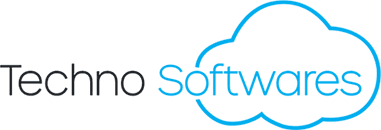How Recruitment Firms Can Use Web Scraping to Extract Job Listings Across Portals
In the fast-paced world of recruitment, firms are constantly seeking innovative methods to streamline their processes and enhance their competitive edge. One such method that has gained significant traction is web scraping. This technique involves extracting data from websites, allowing recruitment firms to gather vast amounts of information efficiently.
By leveraging web scraping, these firms can access job listings, candidate profiles, and industry trends across various platforms, enabling them to make informed decisions and improve their recruitment strategies. Web scraping is not merely a technical endeavor; it represents a paradigm shift in how recruitment firms approach talent acquisition. Traditionally, recruiters relied on manual searches and outdated databases, which often resulted in missed opportunities and inefficiencies.
With the advent of web scraping, firms can automate the data collection process, ensuring they have the most up-to-date information at their fingertips. This article delves into the intricacies of web scraping for recruitment firms, exploring its importance, benefits, challenges, and best practices.
Key Takeaways
- Web scraping is a valuable tool for recruitment firms to gather data from various job portals and websites.
- Extracting job listings across different portals is crucial for recruitment firms to have a comprehensive view of available opportunities.
- Automating data gathering from LinkedIn, Indeed, and Glassdoor can save time and provide a competitive edge for recruitment firms.
- The process of web scraping for job listings involves identifying relevant websites, extracting data, and organizing it for analysis.
- Techno Softwares offers solutions to help recruitment firms with web scraping, streamlining the process and improving efficiency.
Understanding the Importance of Extracting Job Listings Across Portals
Automating Job Listing Extraction
By automating the extraction of job listings from various portals, recruitment firms can compile comprehensive databases that reflect the current job market landscape. Moreover, extracting job listings across multiple portals allows recruitment firms to identify trends and patterns that may not be immediately apparent through manual searches.
Identifying Trends and Patterns
For instance, a firm may notice a surge in demand for specific skills or roles within a particular industry. This insight can inform their recruitment strategies, enabling them to target candidates more effectively and tailor their outreach efforts.
Staying Ahead of the Curve
In essence, web scraping empowers recruitment firms to stay ahead of the curve by providing them with real-time data that drives strategic decision-making.
The Benefits of Automating Data Gathering from LinkedIn, Indeed, and Glassdoor

Automating data gathering through web scraping offers numerous advantages for recruitment firms. First and foremost, it significantly reduces the time and effort required to collect job listings. Instead of dedicating hours to manually searching each portal, recruiters can set up automated scripts that continuously scrape relevant data.
This efficiency not only saves time but also allows recruiters to focus on higher-value tasks such as engaging with candidates and building relationships. Additionally, automation enhances the accuracy and consistency of data collection. Manual processes are prone to human error, which can lead to discrepancies in the information gathered.
By utilizing web scraping tools, recruitment firms can ensure that they are collecting data in a standardized format, minimizing the risk of errors. Furthermore, automated scraping can be scheduled to run at regular intervals, ensuring that recruiters always have access to the most current job listings and candidate information.
The Process of Web Scraping for Job Listings
The process of web scraping for job listings involves several key steps that require both technical expertise and strategic planning. Initially, recruitment firms must identify the specific websites they wish to scrape and determine the types of data they need to collect. This could include job titles, descriptions, company names, locations, and application links.
Once the target websites are established, the next step involves selecting appropriate web scraping tools or frameworks that align with the firm’s technical capabilities. After selecting the tools, recruiters must develop or configure scraping scripts that navigate the target websites and extract the desired data. This often involves writing code in programming languages such as Python or using specialized scraping software that simplifies the process.
The scripts must be designed to handle various website structures and formats, ensuring that they can adapt to changes in the website’s layout or content. Once the data is scraped, it is typically stored in a structured format such as CSV or a database for further analysis and integration into existing systems.
How Techno Softwares Can Help Recruitment Firms with Web Scraping
Techno Softwares has emerged as a leading provider of web scraping solutions tailored specifically for recruitment firms. Their expertise in developing customized scraping tools allows recruitment agencies to harness the power of automation without needing extensive technical knowledge. By partnering with Techno Softwares, firms can access pre-built scraping solutions that are designed to extract data from popular job portals like LinkedIn, Indeed, and Glassdoor seamlessly.
One of the standout features of Techno Softwares’ offerings is their ability to provide ongoing support and maintenance for scraping tools. As websites frequently update their layouts and structures, having a partner that can quickly adapt scraping scripts ensures that recruitment firms do not experience downtime or loss of data access. Additionally, Techno Softwares offers training sessions for recruitment teams, empowering them to utilize these tools effectively and maximize their data-gathering capabilities.
Overcoming Challenges in Web Scraping for Job Listings

Overcoming Anti-Scraping Measures
Many job portals employ anti-scraping techniques such as CAPTCHAs or IP blocking to prevent automated data extraction. Recruitment firms must navigate these obstacles carefully to avoid being banned from accessing valuable data sources.
Strategies to Overcome Challenges
To overcome these challenges, recruitment firms can employ various strategies. For instance, using rotating proxies can help disguise the source of requests and reduce the likelihood of being flagged as a bot. Additionally, implementing delays between requests can mimic human browsing behavior, further minimizing detection risks.
Staying Ahead of Anti-Scraping Technologies
It is crucial for firms to stay informed about the evolving landscape of anti-scraping technologies and adapt their strategies accordingly to maintain access to essential job listings.
Ensuring Data Accuracy and Integrity in Web Scraping
Data accuracy and integrity are paramount when it comes to web scraping for recruitment purposes. Inaccurate or outdated information can lead to poor hiring decisions and damage a firm’s reputation in the industry. To ensure high-quality data collection, recruitment firms must implement robust validation processes during and after the scraping process.
One effective approach is to cross-reference scraped data with other reliable sources or databases. For example, if a firm scrapes job listings from multiple portals, they can compare the information against their internal records or industry reports to identify discrepancies. Additionally, employing data cleaning techniques—such as removing duplicates or standardizing formats—can enhance the overall quality of the collected data.
By prioritizing data accuracy and integrity, recruitment firms can make informed decisions based on reliable insights.
Compliance and Legal Considerations in Web Scraping for Recruitment Firms
As recruitment firms embrace web scraping as a tool for data collection, it is essential to navigate the legal landscape surrounding this practice carefully. Different jurisdictions have varying laws regarding data privacy and intellectual property rights that may impact how firms can scrape data from websites. For instance, some websites explicitly prohibit scraping in their terms of service, while others may allow it under certain conditions.
Recruitment firms must conduct thorough research into the legal implications of web scraping in their operating regions. Consulting with legal experts who specialize in technology law can provide valuable insights into compliance requirements and best practices for ethical scraping. Additionally, firms should consider implementing measures such as obtaining permission from website owners when necessary or adhering to robots.txt files that outline acceptable crawling behavior.
Integrating Web Scraping with Recruitment Firm’s Existing Systems
To maximize the benefits of web scraping, recruitment firms must consider how to integrate scraped data into their existing systems seamlessly. This integration is crucial for ensuring that recruiters can access valuable insights without disrupting their workflows. Many firms utilize applicant tracking systems (ATS) or customer relationship management (CRM) software to manage candidate interactions and job postings.
By developing APIs or utilizing middleware solutions, recruitment firms can automate the transfer of scraped data into their ATS or CRM systems. This integration allows recruiters to view real-time job listings alongside candidate profiles and application statuses, streamlining their decision-making processes. Furthermore, integrating scraped data with analytics tools can provide deeper insights into market trends and candidate behavior, enhancing overall recruitment strategies.
Best Practices for Using Web Scraping in Recruitment
To harness the full potential of web scraping in recruitment effectively, firms should adhere to several best practices. First and foremost, establishing clear objectives for what data needs to be collected is essential. This clarity will guide the scraping process and ensure that recruiters focus on gathering relevant information that aligns with their hiring goals.
Additionally, maintaining transparency with candidates about how their data may be used is crucial for building trust and credibility in the recruitment process. Firms should also prioritize ethical scraping practices by respecting website terms of service and avoiding aggressive scraping techniques that could disrupt website functionality. Regularly reviewing and updating scraping scripts is another best practice that ensures continued effectiveness in data collection efforts.
As websites evolve over time, so too must the strategies employed by recruitment firms to adapt to these changes.
Leveraging Web Scraping for Competitive Advantage in Recruitment
In an increasingly competitive recruitment landscape, leveraging web scraping technology offers firms a distinct advantage in accessing real-time job listings and candidate information across multiple platforms. By automating data gathering processes through effective web scraping strategies, recruitment agencies can enhance their operational efficiency while making informed decisions based on accurate insights. As technology continues to evolve, embracing innovative solutions like web scraping will be essential for recruitment firms aiming to stay ahead of industry trends and meet the demands of an ever-changing job market.
By understanding its importance, overcoming challenges, ensuring compliance with legal considerations, integrating scraped data effectively into existing systems, and adhering to best practices, recruitment agencies can position themselves as leaders in talent acquisition while maximizing their competitive edge.
If you are interested in learning more about how Techno Softwares can help automate data gathering from various platforms, you may want to check out their article on how an eCommerce digital advertising agency can drive more revenue. This article provides insights into how businesses can leverage digital advertising to increase their revenue streams. Additionally, you may also find their article on software development metrics and KPIs and the role of content marketing to be valuable resources for understanding different aspects of technology and marketing strategies.
Get Scraping Service (FREE Demo)
FAQs
What is web scraping?
Web scraping is the process of extracting data from websites. It involves using automated tools to gather information from web pages and then saving that data into a structured format for further analysis.
How can recruitment firms use web scraping to extract job listings across portals?
Recruitment firms can use web scraping to gather job listings from various job portals such as LinkedIn, Indeed, and Glassdoor. This allows them to collect a large volume of job postings in a short amount of time, which can then be used for analysis, reporting, and matching candidates with job opportunities.
What are the benefits of using web scraping for recruitment firms?
Using web scraping to extract job listings across portals can save time and effort for recruitment firms. It allows them to gather a comprehensive view of the job market, identify trends, and gain insights into the demand for specific skills and roles. This can help them make more informed decisions and provide better services to their clients.
How can Techno Softwares automate data gathering from LinkedIn, Indeed, and Glassdoor?
Techno Softwares can automate data gathering from LinkedIn, Indeed, and Glassdoor by developing custom web scraping tools and scripts. These tools can be programmed to visit the websites, extract the relevant job listings, and save the data into a structured format for further analysis and reporting.





